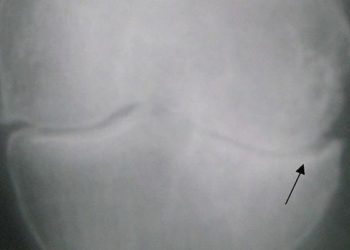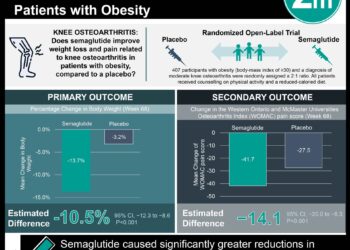Increased sleep linked to lower dietary intake in children
Image: PD
1. Children who slept more each night for one week reported consuming less calories/day than those who were sleeping less.
2. On average, children weighed 0.22 kg less after a week period of increased sleep as opposed to a week long period of decreased sleep.
Study Rundown: Due to the current obesity epidemic, studies have focused on the treatment and prevention of obesity in children. Recent data has shown that decreased sleep in childhood is associated with an increased risk of obesity later in life. This effect has yet to be studied in school-age children. This study focused on the effect of changes in sleep duration in school-age children on caloric intake, food reinforcement, appetite regulating hormones (leptin and ghrelin), and weight. It was found that children with more sleep (an average of 2 hour and 21 m minutes, P<.001) consumed significantly fewer calories, weighed less, and had lower fasting levels of leptin. No significant differences between sleep groups were seen in ghrelin levels or in children’s desire for food. This study is limited by its small sample size and the inability to determine long-term changes in child sleep patterns. These findings support and build on previous research and present a potential option to preventing excess weight gain and obesity in children.
Click to read the study, published today in Pediatrics
Relevant Reading: Meta-analysis of short sleep duration and obesity in children and adults
Study Author, Dr. Chantelle N. Hart, PhD, talks to 2 Minute Medicine: Center for Obesity Research and Education, Temple University.
“Epidemiological studies consistently demonstrate that short sleep during childhood is associated with increased obesity risk. The present study used an experimental design in an attempt to see if changing children’s sleep duration resulted in acute changes in eating behaviors, hunger and appetite regulating hormones, and weight. Following a week of sleeping their typical amount, children were randomized to increase or decrease their time in bed by 1.5 hours/night for one week; they completed the alternate schedule on the third and final week of the study. Compared to when children decreased their sleep, when they increased their sleep they reported eating 134 kcal/day fewer, had lower fasting leptin levels, and weighed 0.5 lbs less. Findings suggest that enhancing school-age children’s sleep could decrease food intake and enhance weight regulation. Exploring the utility of such an approach-particularly over a longer period of time- will be an important step for future study.”
In-Depth: A total of 37 children (mean age of 9.6 years) completed this study. All children were initially evaluated for one week to determine average amount of sleep per night. After the initial week, participants were randomized into two groups, one which increased time in bed from baseline by 1.5 hours and the other which decreased time in bed by the same amount. Children followed this plan for one week and then completed the alternate schedule the following week. Subjects averaged a 2 hour and 21 minute change from the increased versus decreased sleep conditions (p< .001). Dietary recalls were used to determine caloric intake. Each week blood was drawn to determine leptin and ghrelin levels, height and weight were assessed, and food reinforcement was determined. Results showed that children with increased sleep consumed 134 kcal/day less (p = .04), and 103 kcal/day more with decreased sleep (p < .001). Morning leptin levels were significantly lower during the increased sleep condition as compared to the decreased (p < .05). It was also shown that the participants weighed significantly less after the increased sleep period (p < .001).
More from this author: Multiple variables related to physical activity levels in preschool children, Athlete-endorsed food and beverage products often unhealthy, Minorities under-treated in pediatric emergency departments, Successful regional implementation of pediatric chest pain algorithm, EMR tool may aid in diagnosis and management of ADHD
© 2013 2minutemedicine.com. All rights reserved. No works may be reproduced without expressed written consent from 2minutemedicine.com. Disclaimer: We present factual information directly from peer reviewed medical journals. No post should be construed as medical advice and is not intended as such by the authors, editors, staff or by 2minutemedicine.com. PLEASE SEE A HEALTHCARE PROVIDER IN YOUR AREA IF YOU SEEK MEDICAL ADVICE OF ANY SORT.






